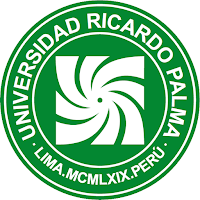The thematic constants of prison and family in César Vallejo’s collection of poems Trilce (1922)
The thematic constants of prison and family in César Vallejo’s collection of poems Trilce (1922) Les constantes thématiques de la prison et de la famille dans le recueil de poèmes Trilce (1922) de César Vallejo
Article Sidebar
Main Article Content
Francisco Távara Córdova
Abstract
The centenary of the publication of César Vallejo’s Trilce (1922) merits an examination of the topics that organise the universe of its significance. This research article focuses its attention on the explanation of two fundamental topics: the figuration of the mother (the family centred on her presence and the rituals that revolve around her) and the representation of prison. For the development of the reflections on the first topic, poems XXIII and XXVIII are taken as the object of study, and for the second, poems XXII, XVIII-LVIII and L. The analysis will allow us to understand that the elements that allude to the family universe model a sort of maternalisation of the world; a poetic construction where the presence of the mother is a capital figure, energy and a force that produces meaning, and her absence marks the experience of life as traumatic and empty. Precisely because of this, the experience of prison that some poems communicate, the day-to-day life behind bars, becomes a survivable experience thanks to the memories provided by the maternalisation of the maternal world.
Article level metrics
Downloads
Metrics
Article Details

This work is licensed under a Creative Commons Attribution 4.0 International License.
La revista utiliza una licencia Creative Commons para mostrar a los lectores y a los usuarios cómo se pueden utilizar los contenidos publicados.
Los contenidos publicados en la revista están bajo una licencia CC-BY 4.0, la cual permite:
- Compartir, copiar y redistribuir el material en cualquier medio o formato.
- Adaptar, remezclar, transformar y construir a partir del material para cualquier propósito, incluso comercialmente.
Bajo los siguientes términos:
- Atribución. Usted debe dar crédito de manera adecuada, brindar un enlace a la licencia, e indicar si se han realizado cambios. Puede hacerlo en cualquier forma razonable, pero no de forma tal que sugiera que usted o su uso tienen el apoyo de la licenciante.
La información de licencia se muestra e incrusta en las páginas de artículos y en ficheros de texto completo como sigue:
«Este obra está bajo una licencia de Creative Commons Reconocimiento 4.0 Internacional».
Espejo, J. (1989). César Vallejo: itinerario del hombre, 1892-1923. Seglusa.
Ferrari, A. (1998). El universo poético de César Vallejo. Universidad de San Martín de Porres.
González Vigil, R. (2019). Trayectoria de Vallejo. En Vallejo, C. (2019), César Vallejo. Todos los poemas (t. I, pp. 59-101). Universidad Ricardo Palma.
Hart, S. (2014). César Vallejo. Una biografía literaria. Cátedra Vallejo.
Orrego, A. (1989). Mi encuentro con César Vallejo. Tercer Mundo.
Orrego, A. (2018). El sentido americano y universal de la poesía de César Vallejo. Cátedra Vallejo; Alastor.
Silva-Santisteban, R. (2016). César Vallejo y su creación literaria. Cátedra Vallejo.
Vallejo, C. (2011). Correspondencia completa (J. Cabel, ed.). PreTextos.
Vallejo, C. (2019). César Vallejo. Todos los poemas. Universidad Ricardo Palma.
Most read articles by the same author(s)
- Francisco Távara Córdova, The Search for Poetic Justice in César Vallejo’s The Black Heralds , Archivo Vallejo: Vol. 2 No. 4 (2019): July - December
- Francisco Távara Córdova, Antenor Orrego y César Vallejo. Tres momentos de una amistad , Archivo Vallejo: Vol. 1 No. 2 (2018): July - December
- Francisco Távara Córdova, Los heraldos negros a casi cien años de su publicación. Una mirada histórica de su recepción , Archivo Vallejo: Vol. 1 No. 1 (2018): January - June










